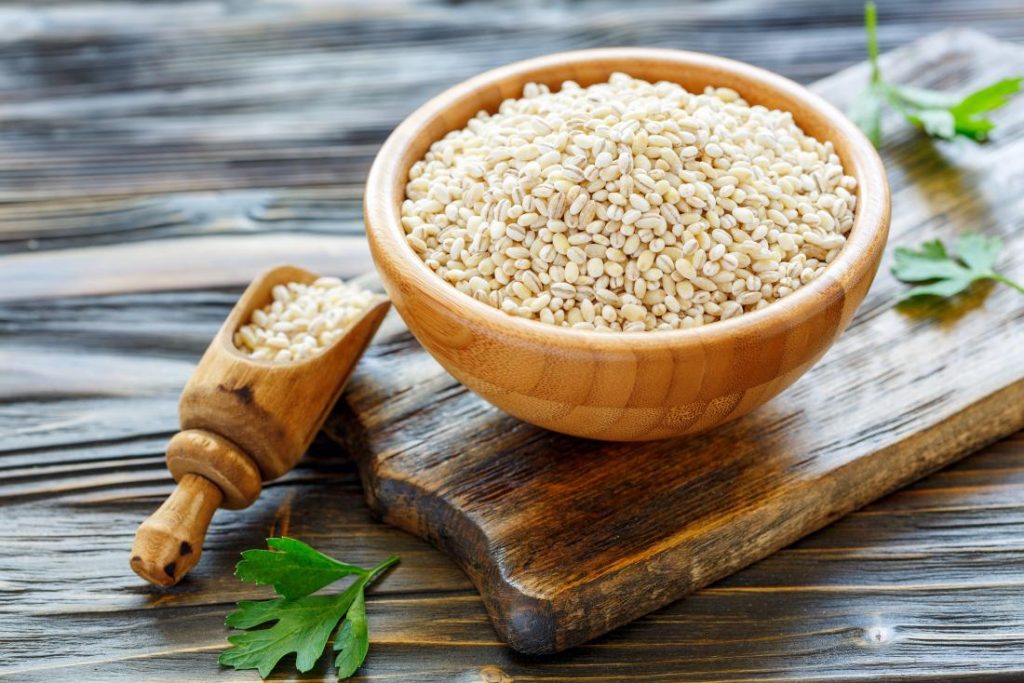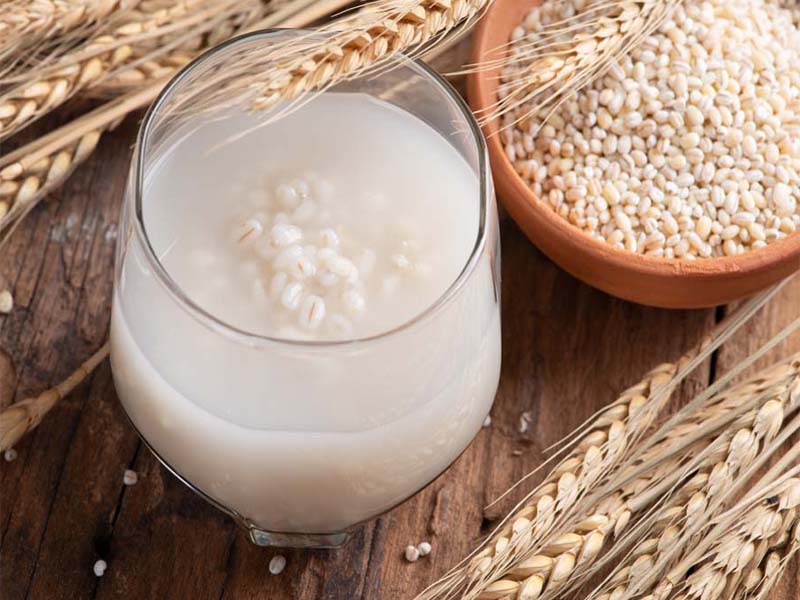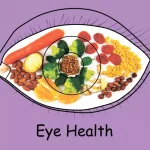Top 5 Barley Benefits For Health. Barley is one of the most popular grains in the American diet. This adaptable grain has a slightly chewy texture and a slightly nutty flavor which complements a wide range of dishes. It’s also high in nutrients and has a long list of health benefits, including improved digestion, weight loss, lower cholesterol levels, and a healthier heart.
Top 5 Barley Benefits For Health
Here are five Top 5 Barley Benefits For Health we would like to share with you all!
Numerous Beneficial Nutrients

Barley is high in vitamins, minerals, and other phytonutrients. It comes in a variety of forms, including hulled barley, barley grits, flakes, and flour.
With the exception of pearl barley, which has been spruced up to delete some or all of the outer seed coat as well as the hull, almost all types of barley use the whole grain. When eaten whole, barley is an excellent source of fiber, manganese, molybdenum, and selenium.
It is also high in magnesium, copper, chromium, vitamin B1, phosphorus, and niacin. Furthermore, barley contains lignans, a type of antioxidant connected to a lower risk of heart disease and cancer. However, barley, like all whole grains, contains antinutrients, which impair nutrient digestion and absorption.
To decrease the antinutrient content, soak or sprout the grain. These methods of preparation increase the absorbability of barley’s nutrients. Soaking and sprouting have the potential to boost vitamin, mineral, protein, and antioxidant levels. Furthermore, sprouted barley flour can be used in baking.
Reduces Hunger and May Aid in Weight Loss
Barley may suppress hunger and increase feelings of fullness, both of which may result in weight loss over time.
Barley’s high fiber content helps to reduce hunger. Beta-glucan, a soluble fiber, is especially beneficial.
This is because soluble fibers, including beta-glucan, tend to create a gel-like substance in your gut, slowing digestion and nutrient absorption. As a result, your appetite is reduced and you feel fuller. According to a review of 44 studies, soluble fibers like beta-glucan are the most effective form of fiber for lowering appetite and regulating food intake. Furthermore, soluble fiber may aim belly fat linked to metabolic disease.
Digestion is aided by the presence of both insoluble and soluble fiber
Barley can improve intestinal health. Its high number of fibers — specifically, its insoluble fiber — is to blame. The majority of the fiber in barley is irresolvable, which means it does not mix with water, unlike soluble fiber. Instead, it bulks up your stool and speeds up intestinal movement, lowering your chances of constipation.
Eating more barley enhanced bowel function as well as increased stool volume in a four-week study of adult women. On the other hand, the soluble fiber content of barley feeds friendly gut bacteria, which produce short-chain fatty acids. SCFAs have been shown in studies to help feed gut cells, lowering inflammation and enhancing symptoms of gut disorders including IBS, Crohn’s disease, and ulcerative colitis.
May Prevent Gallstones and Lower Your Chances of Having Gallbladder Surgery

Barley Benefits For Health: The high fiber content of barley may also help avoid gallstones. Gallstones are solid particles that form on their own in the gallbladder, a small organ positioned beneath the liver. Bile acids are produced by the gallbladder and are used by the body to digest fat.
Gallstones do not usually cause any symptoms. Large gallstones, on the other hand, can occasionally become lodged in a duct of your gallbladder, having caused excruciating pain. In such cases, the gallbladder is frequently removed surgically. The insoluble fiber discovered in barley may help to prevent gallstone formation and decrease the likelihood of gallbladder surgery.
In one 16-year ongoing study, women who consumed the most fiber were 13% less prone to developing gallstones that necessitated gallbladder removal. This benefit appears to be dose-dependent, as every 5-gram rise in insoluble fiber intake reduced the risk of gallstones by around 10%.
In another study, obese people were randomly assigned to one of two rapid weight loss diets, one high in fiber and the other high in protein. Rapid weight loss can increase the likelihood of gallstone formation. After 5 weeks, attendees on the fiber-rich diet were three times more inclined than those on the protein-rich diet to have healthy gallbladders.
Beta-Glucans May Aid in Cholesterol Reduction
Barley may also help to lower your cholesterol. Barley beta-glucans have been shown to lower “bad” LDL cholesterol by shackling to bile acids. Your body excretes these bile acids, which are produced by your liver from cholesterol.
Your liver then must use up more cholesterol in order to produce new bile acids and lower the number of cholesterol in your blood. Men with heart problems were put on a diet high in whole wheat, brown rice, or barley in one small study. After five weeks, those who consumed barley lowered their cholesterol levels by 7% more than those who consumed the other two diets.
Furthermore, the barley group had the highest increase in “good” HDL cholesterol and the lowest triglyceride levels. A recent review of 14 randomized controlled trials — the gold standard in scientific research — discovered similar findings.
According to the lab, animal, and human studies, the SCFAs generated once healthy gut bacteria feed on dietary fiber may also help prevent cholesterol production, lowering cholesterol levels even further.
The Bottom Line
Barley Benefits For Health: Barley is a very nutritious grain. It’s high in vitamins, minerals, and other plant compounds. It’s also high in fiber, which accounts for the majority of its health benefits, which range from improved digestion to lowered hunger and weight loss.
Making barley a regular part of your diet may also protect you from chronic diseases like diabetes, heart disease, and certain kinds of cancer. Ignore processed, pearled barley in favor of whole-grain varieties such as hulled barley as well as barley grits, flakes, and flour.




